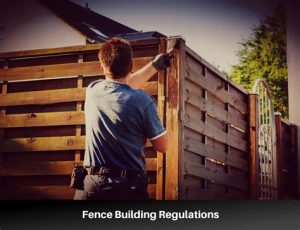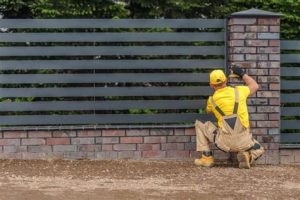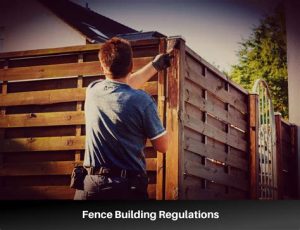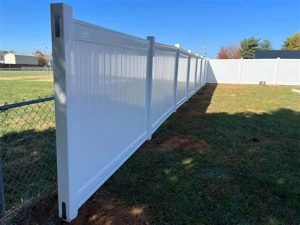Learn about local fencing regulations, license requirements, permits, training, and obtaining a professional fencing license for your project.When it comes to installing a fence, many homeowners wonder about the necessity of obtaining a license. After all, a fence can enhance your property’s aesthetics, provide privacy, and offer security. However, navigating the legal landscape surrounding fence installation can be daunting. In this comprehensive guide, we will explore the ins and outs of local fencing regulations, help you research the specific license requirements in your area, and outline the steps to apply for the necessary permits. Additionally, we’ll discuss the possibility of completing required training or certification and how to obtain a professional fencing license if needed. Whether you’re a DIY enthusiast or considering hiring a contractor, understanding these aspects will ensure your fencing project complies with local laws and standards. Let’s dive in and unravel the requirements for a successful and legally sound fence installation!
Understanding local fencing regulations
When considering a fencing project, it’s crucial to first understand the local fencing regulations that govern your area. These regulations can vary significantly from one municipality to another, making it essential to conduct thorough research before proceeding.
Many localities have specific rules regarding the height, material, and location of fences. For instance, some areas might restrict fence heights to a maximum of six feet, while others may allow taller structures depending on their purpose. Additionally, certain materials, such as barbed wire or chain link, might be prohibited in residential zones to maintain aesthetic harmony in neighborhoods.
To assist you in navigating these regulations, consider creating a checklist.
| Regulation Aspect | Notes |
|---|---|
| Height Limits | Check local maximum height for residential fences. |
| Material Restrictions | Verify allowed materials for fence construction. |
| Setback Requirements | Ensure your fence is set back the required distance from property lines. |
| Design Permits | Determine if a design approval is needed. |
Moreover, each city or county may have different zoning laws that dictate how close a fence can be constructed to the property line. Failure to comply can result in fines or the requirement to remove the fence altogether. Always check with your local planning or zoning department to ensure that your fencing project adheres to all applicable regulations.
Researching license requirements in your area
When considering the installation of a fence, the first question that often arises is whether you need a license to do so. The answer can greatly vary depending on where you live, making it crucial to invest time in researching local regulations. This process involves understanding your specific area’s legal requirements and any restrictions that may apply to fence installation.
Start by checking your city or county government’s website, as most of them provide a wealth of information regarding building regulations and licensing. Look for sections related to fencing, construction permits, or land use codes. Additionally, some municipalities require property owners to obtain a homeowners’ association (HOA) approval, which can dictate specific stipulations about the type and height of fence allowed.
Another helpful resource is the local building department. You can call or visit them to inquire directly about any licensing requirements for fence installation. They can provide information on any permits that you may need to file, inspect potential zoning issues, and clarify whether you need a professional license to perform the work. Utilizing these resources can ensure that your fence project complies with all local laws and regulations.
Applying for the necessary permits
When it comes to installing a fence, applying for the necessary permits is a crucial step that should not be overlooked. Many local governments require homeowners to obtain permits before starting construction. This ensures that the installation meets safety standards and adheres to zoning laws.
To begin the process, you need to reach out to your local municipal office or planning department. They typically provide the necessary forms and inform you of the specific requirements that you need to fulfill to obtain your permit. This may include submitting a plan that outlines the type of fence, its dimensions, and its location on your property.
In most cases, you will also need to pay a permit fee, which can vary depending on your locality and the size of your project. After your application is submitted, the office will review it to ensure compliance with all local fencing regulations. It’s essential to be patient during this stage; approval times can vary, so it’s wise to apply early in your planning process.
| Step | Details |
|---|---|
| 1. Contact Local Office | Reach out to your city or county planning department. |
| 2. Submit Application | Complete the required forms and submit them with your plans. |
| 3. Pay Permit Fee | Be prepared to pay the associated fee for your permit. |
| 4. Await Approval | Allow time for the review and approval process. |
Completing required training or certification
When considering the installation of fences, one crucial aspect to pay attention to is the completion of necessary training or certification. This ensures not only compliance with local laws but also enhances your skills and knowledge in the field. Many regions require professionals to undergo specific training programs to understand the best practices in fencing installation.
Training programs may cover various subjects, including safety protocols, tools and equipment handling, materials selection, and even local zoning laws.
- Understanding local regulations and codes related to fencing
- Learning about different types of fencing materials and their uses
- Gaining hands-on experience with fencing installation techniques
- Training in customer service and project management
Once you complete your training, obtaining a certification can further validate your skills and make you more appealing to potential customers. Local trade organizations or community colleges often offer programs that provide certification upon completion, which can serve as a significant asset in your professional career.
Obtaining a professional fencing license
In many regions, obtaining a professional fencing license is crucial for anyone looking to make a career in fence installation. This license not only ensures that you are qualified to perform the work but also helps to instill confidence in your clients regarding the quality and safety of your installations.
The process of obtaining a professional fencing license can vary significantly depending on your location. However, it generally involves several steps, including passing examinations and demonstrating experience in the field. Additionally, some regions may require you to carry insurance or provide proof of your qualifications.
Ultimately, a professional fencing license not only enhances your credibility as a contractor but also protects you and your clients legally.
Frequently Asked Questions
What types of fences may require a license to install?
Typically, fences that are taller than a certain height (often 6 feet), or those that are designed for specific purposes such as pool safety barriers, may require a license to install.
How can I find out if a zoning permit is needed for my fence?
You can check with your local building department or zoning office to determine if you need a permit based on your area’s regulations.
Are there different licensing requirements for residential versus commercial fence installations?
Yes, residential installations often have different requirements than commercial projects, which may involve stricter codes and inspections.
What are the consequences of installing a fence without a required license?
Installing a fence without a license can lead to fines, removal of the fence, and potential legal issues with neighbors or your local government.
Is it necessary to hire a licensed contractor for fence installation?
While not always necessary, hiring a licensed contractor can ensure compliance with local regulations and building codes, as well as provide professional quality workmanship.
What should I do if my neighbor’s fence encroaches onto my property?
You should first discuss the issue with your neighbor; if that doesn’t resolve it, you may need to consult local zoning laws or seek legal advice.
Can I install a fence on my property line without a license?
You might be able to install a fence on your property line without a license, but it’s essential to check local regulations, as some areas require permits or specific setbacks.





